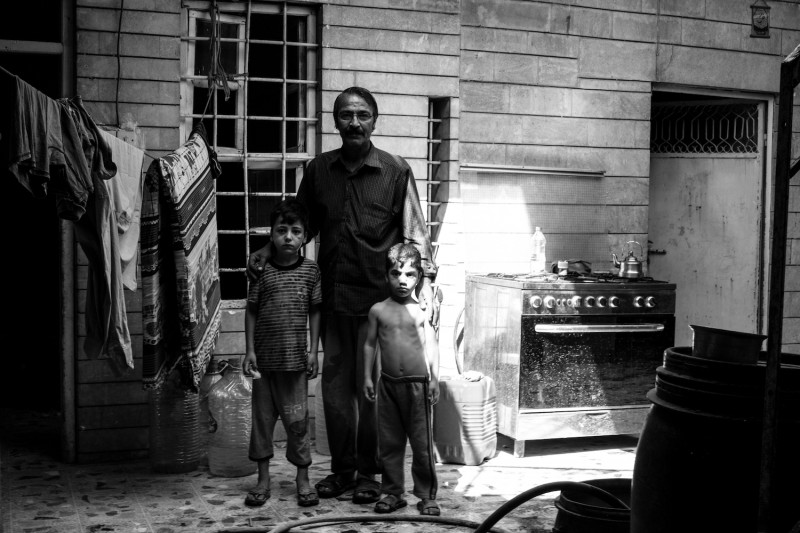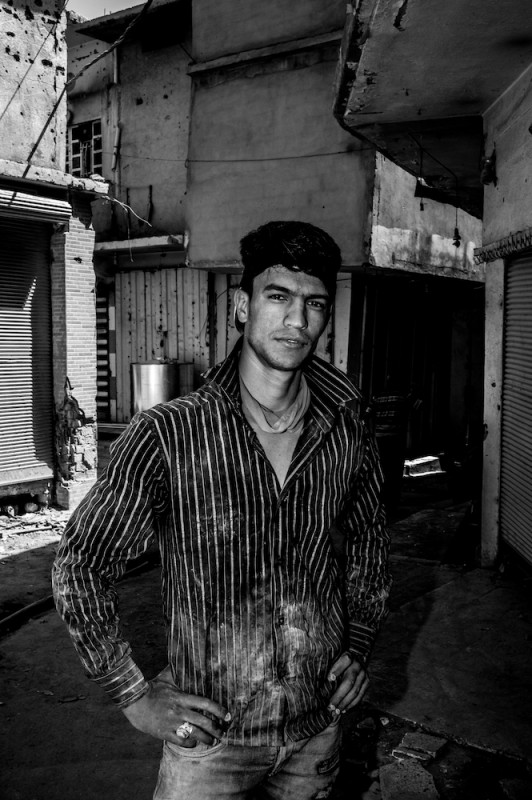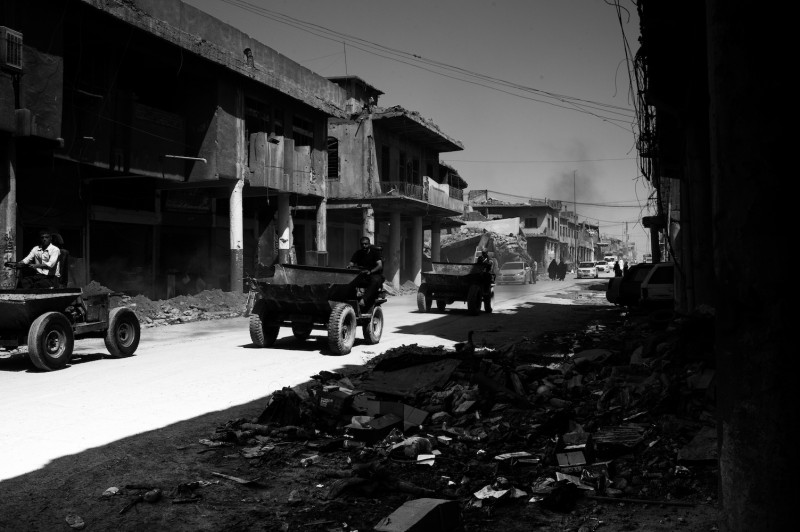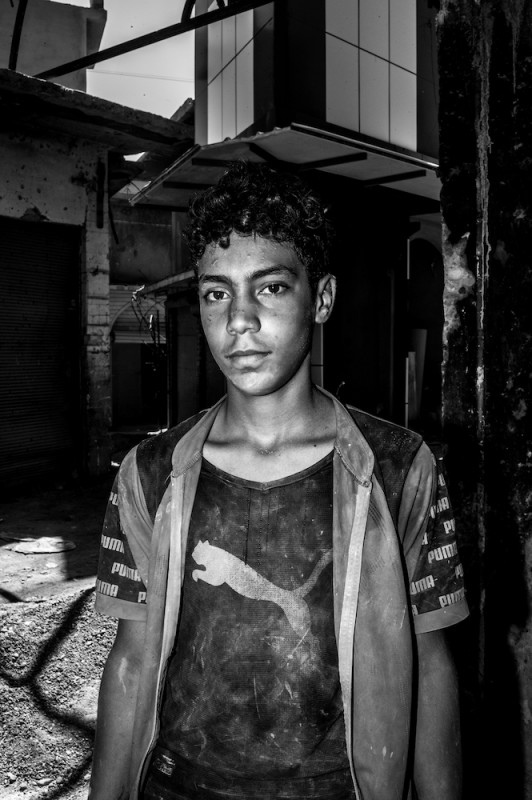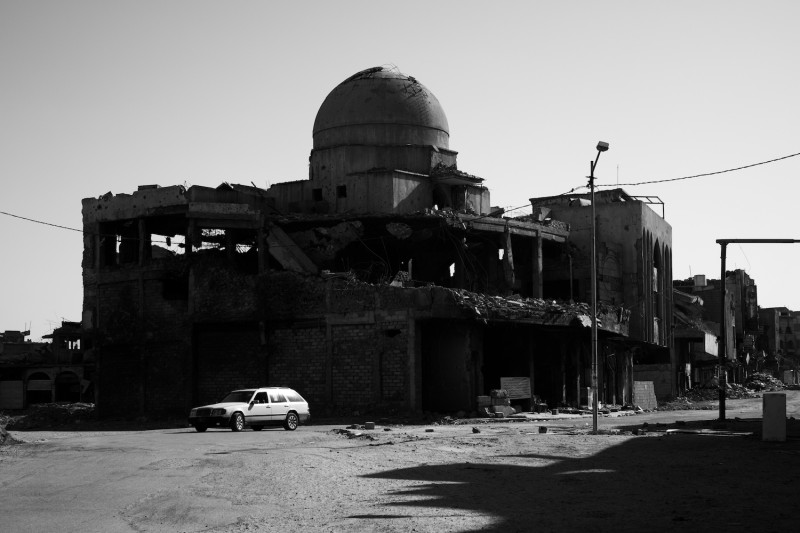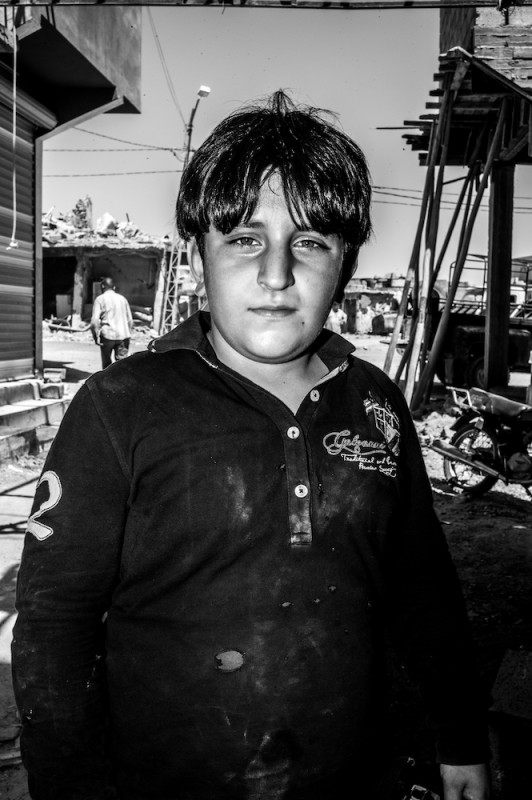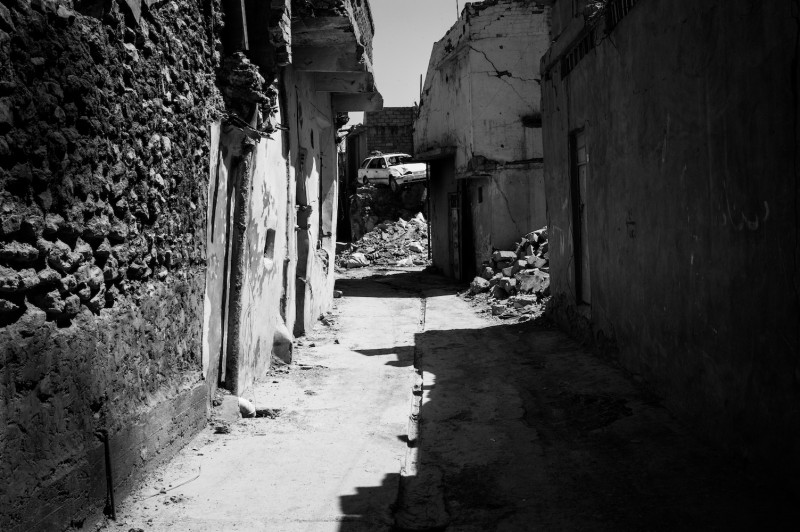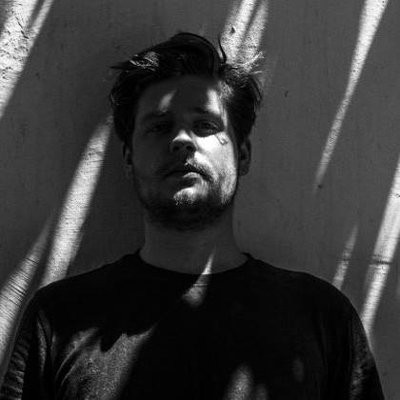In Mosul
In Mosul
Gus Palmer
June 5, 2020
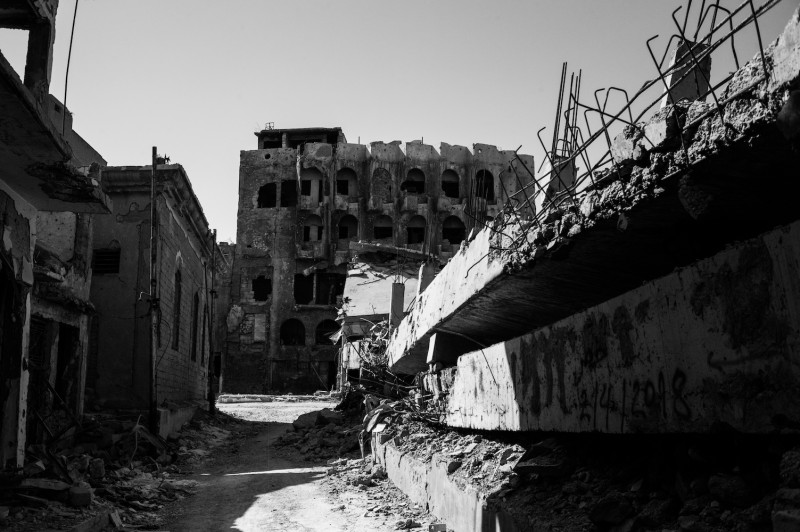
Gus Palmer: This project is a photographic study of the city of Mosul in the wake of being liberated from the Islamic State. I am interested in the way in which societies operate after extreme trauma, and in particular the effect on a civilian population having been under siege. During the battle, the daily news cycle documented the shifting front lines and the extreme violence that the population of Mosul endured. At the end I was left with many questions: What happens now? How do you get up and continue life after experiencing such trauma and devastation?
How did you come up with the idea of portraying the workers in Mosul?
I chose to focus one aspect of my work on the property owners in the old town in the west of the city, which saw the most intense bombardment during the battle to reclaim it. At the time there was much discussion in the media about who was going to foot the bill to reconstruct the mass devastation. On the ground, however, many people were getting on with the clean up job off their own backs.
What were your first steps in photography? Do you remember your first contact with Leica photography?
I purchased a Leica M9 in 2015. At the time I was working on a documentary series for the BBC about the unfolding refugee crisis in Europe. I wanted a full frame camera that was portable. I was unaware at the time how much this camera would inform the way in which I photograph. Using a rangefinder had a massive impact on the way I compose and what I look for in a photograph.
Gus Palmer+-
Gus Palmer is a documentary photographer/film maker based in the UK. He works on commissioned documentary films for the BBC and Channel 4 amongst others, as well as producing long-term photographic projects looking into social issues around the world, focusing in particular on post-conflict studies within various societies. His work in film and photography both share a common theme: a focus on the human perspective in order to explain a narrative on a larger scale. More

